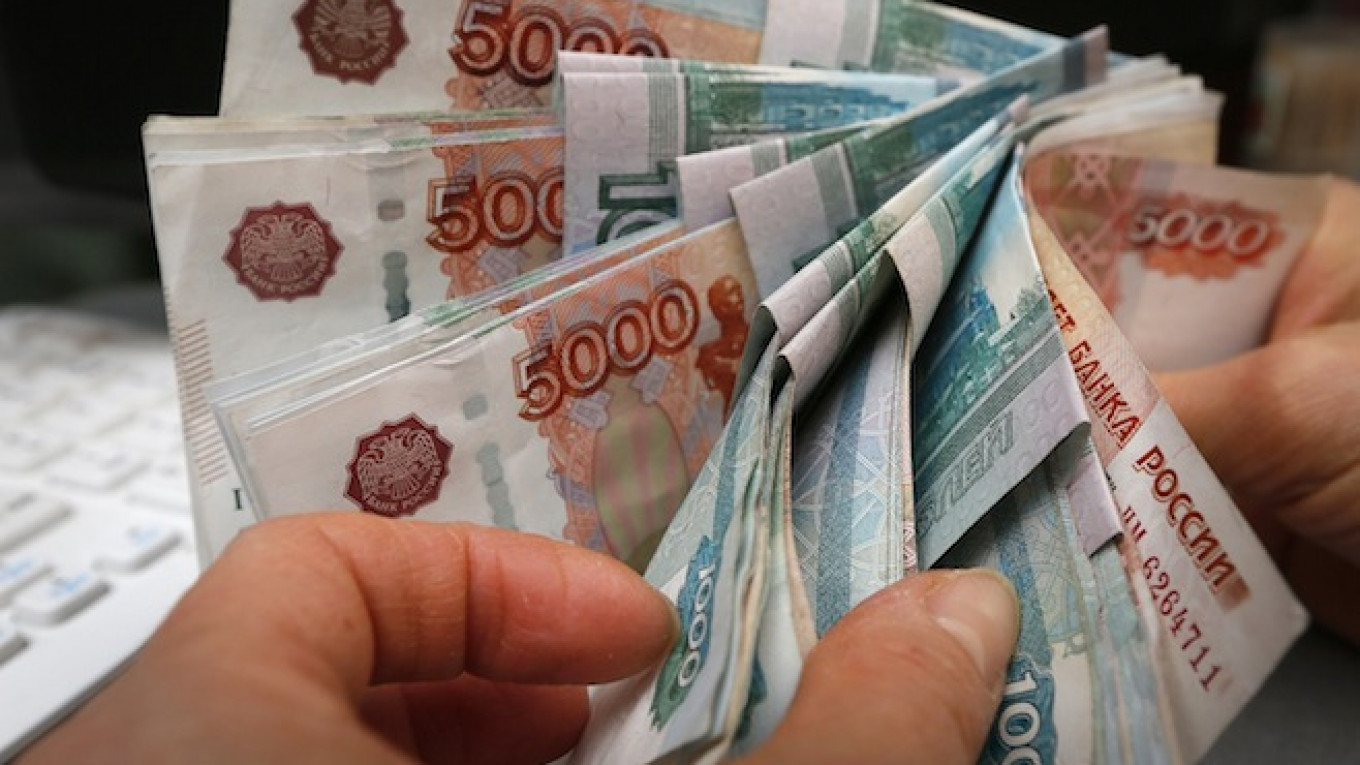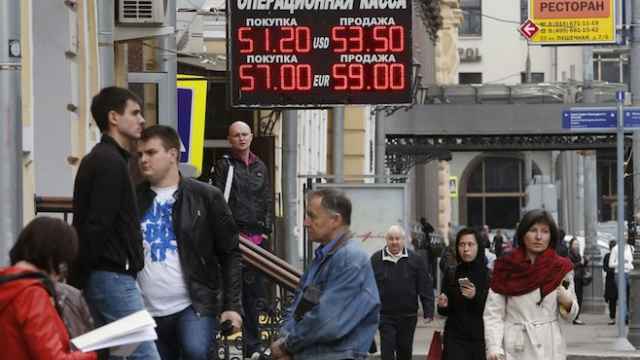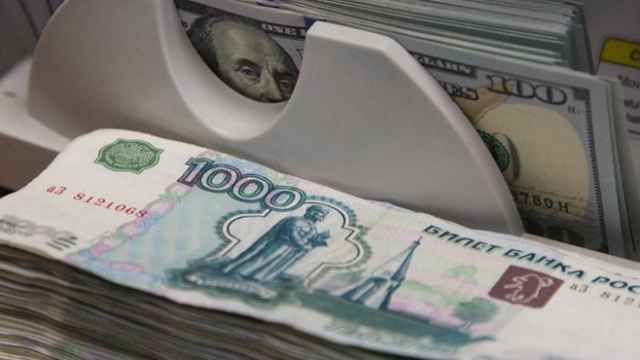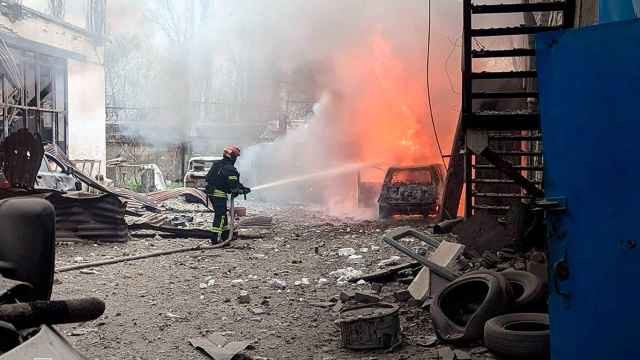Russia's ruble slipped on Monday, pressured by lower oil prices and a stronger dollar, while forex sales dropped off after the end of the monthly tax period.
At 8:13 p.m. Moscow time, the ruble was 2.1 percent weaker against the dollar at 53.48 and lost 1.42 percent versus the euro to trade at 57.52.
Brent crude oil, an important driver for all Russian assets, was 0.6 percent weaker at around $65.2 a barrel.
The U.S. dollar rose 0.4 percent against a basket of major currencies as the euro sank on worries over Greece.
The ruble is supported toward the end of each month by tax payments, but the last of the major taxes fell due late last week, meaning exporters are now selling fewer dollars on the currency market.
Dollar demand is also on the rise because of higher external debt repayments and dividend payments in June, as well as household demand for forex ahead of summer holidays.
Those factors, added to comments by senior officials about the dangers to the budget from a stronger ruble, mean the odds are stacked against the Russian currency in the near term.
Finance Minister Anton Siluanov said Friday that his ministry and the Central Bank have a "splendid understanding of the particular exchange rate levels which we need to orient ourselves toward."
The Central Bank on Monday suspended its one-year foreign exchange repo auctions.
The Central Bank continues to buy between $100 million and $200 million of foreign currency daily to top up its reserves.
"We think that the main goal of stopping the ruble's strengthening has been achieved, and the authorities aren't really interested in it weakening much further," said Dmitry Polevoy, an economist at ING Bank in Moscow.
Russian share indexes moved higher on Monday.
The dollar-denominated RTS index was down 1.54 percent to 953.88 points, while its ruble-based peer MICEX traded .48 percent higher at 1,616.94 points.
A Message from The Moscow Times:
Dear readers,
We are facing unprecedented challenges. Russia's Prosecutor General's Office has designated The Moscow Times as an "undesirable" organization, criminalizing our work and putting our staff at risk of prosecution. This follows our earlier unjust labeling as a "foreign agent."
These actions are direct attempts to silence independent journalism in Russia. The authorities claim our work "discredits the decisions of the Russian leadership." We see things differently: we strive to provide accurate, unbiased reporting on Russia.
We, the journalists of The Moscow Times, refuse to be silenced. But to continue our work, we need your help.
Your support, no matter how small, makes a world of difference. If you can, please support us monthly starting from just $2. It's quick to set up, and every contribution makes a significant impact.
By supporting The Moscow Times, you're defending open, independent journalism in the face of repression. Thank you for standing with us.
Remind me later.






